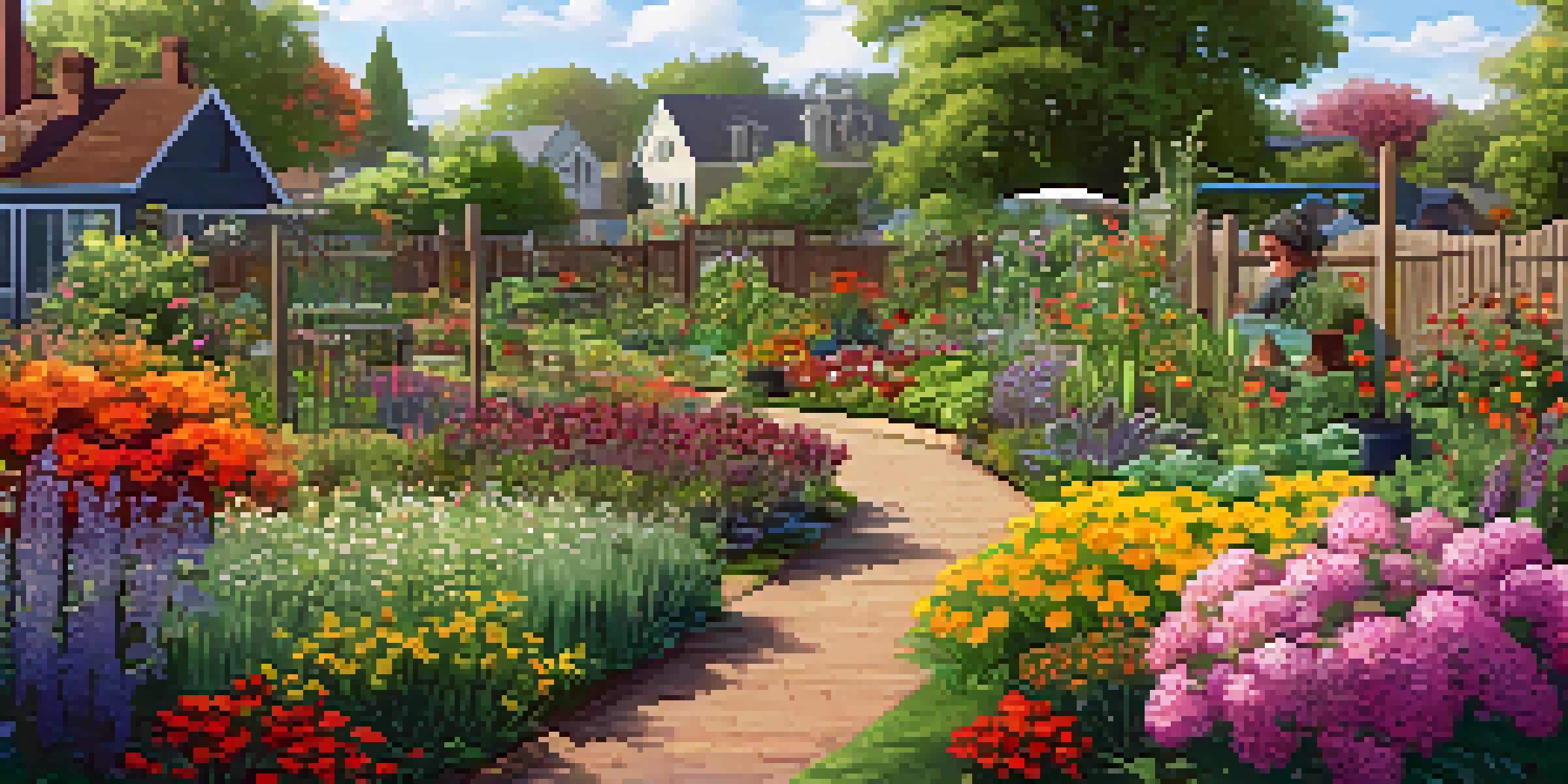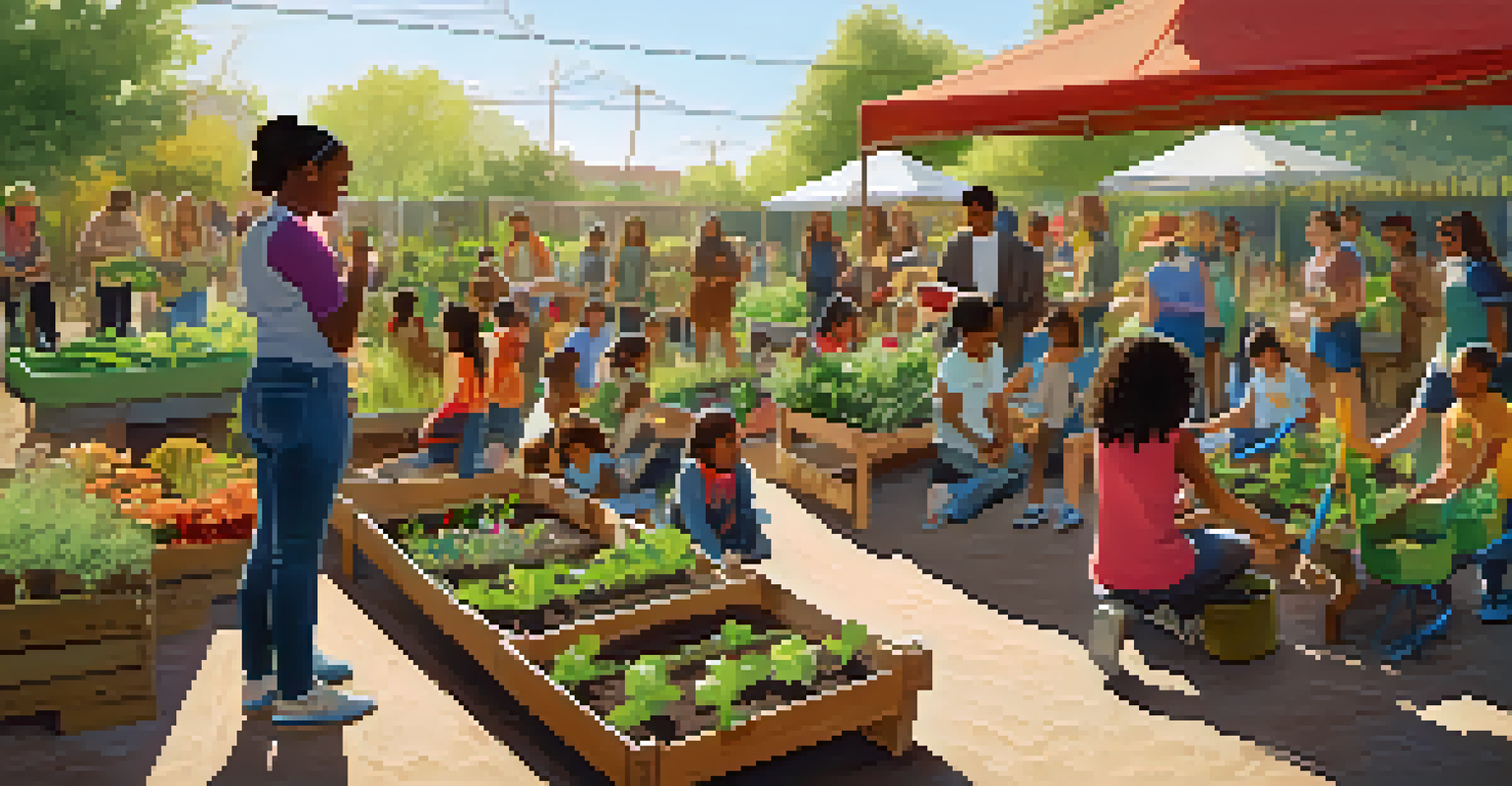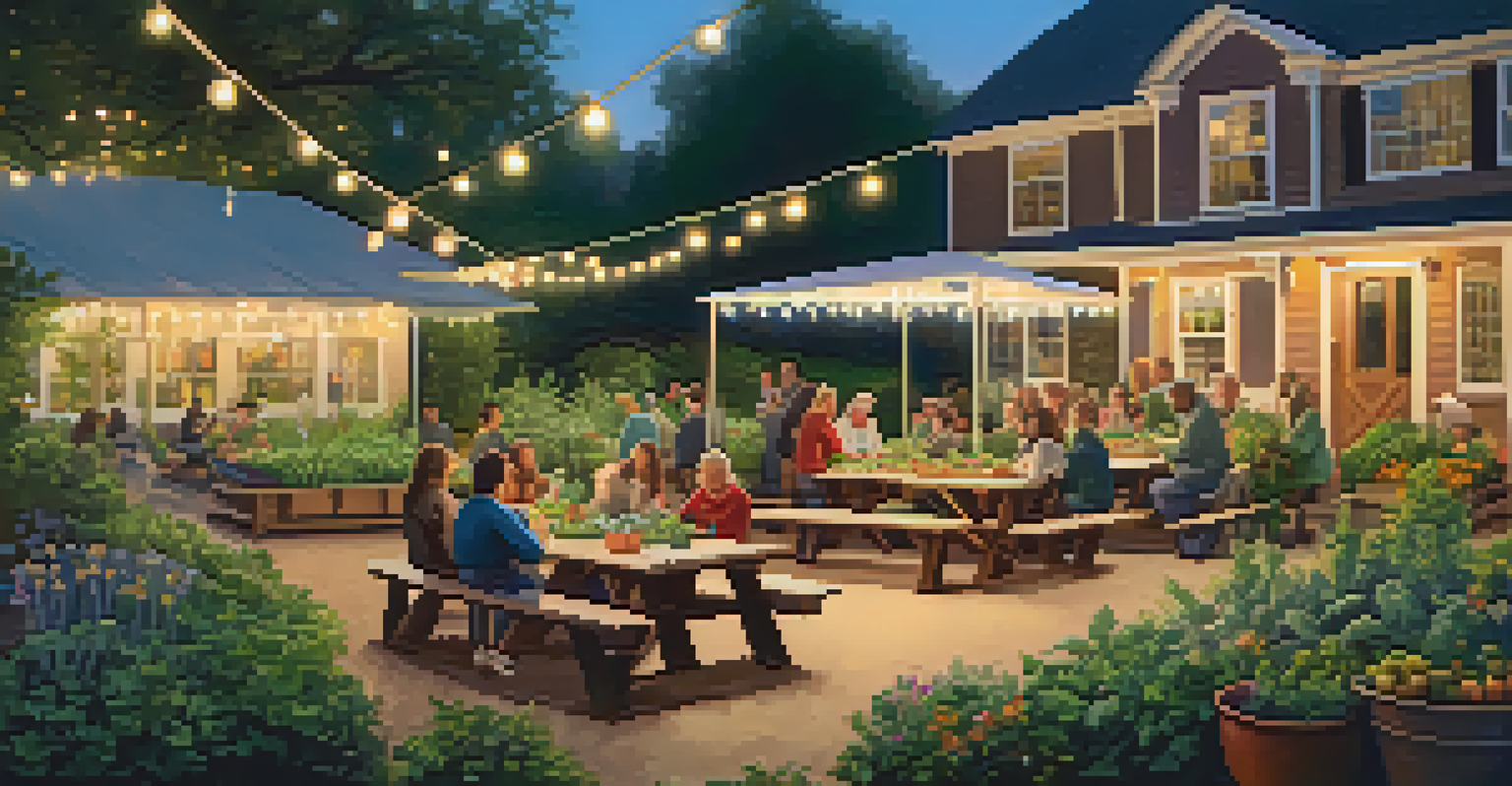Benefits of Community Gardens for Pasadena Residents

Enhancing Community Bonds Through Gardening
Community gardens serve as a vibrant hub where residents can connect and collaborate. These shared spaces foster relationships among neighbors, transforming strangers into friends. As people work side by side, they share tips, stories, and laughter, creating a sense of belonging that enhances community spirit.
Gardening adds years to your life and life to your years.
Moreover, these gardens often host events like potlucks and workshops, further strengthening these bonds. Such gatherings allow residents to celebrate their diverse cultures and culinary traditions, enriching the community's social fabric. The more people interact, the greater the sense of unity and support within the neighborhood.
Ultimately, community gardens are not just about growing plants; they cultivate a thriving community. This sense of togetherness can lead to increased participation in local initiatives and a stronger voice in community matters. It’s about planting the seeds of connection, which can blossom into lasting friendships.
Promoting Health and Wellness Through Gardening
Gardening is not only a fun activity; it’s also a fantastic way to improve physical health. Residents of Pasadena can enjoy the benefits of fresh air and exercise, as tending to a garden involves activities like digging, planting, and weeding. This physical engagement can contribute to better cardiovascular health and overall fitness.

In addition to physical benefits, community gardens encourage healthier eating habits. By growing their own fruits and vegetables, residents gain access to fresh, organic produce, which can be a game-changer for nutrition. This abundance of healthy food options can lead to improved dietary choices and reduced reliance on processed foods.
Community Gardens Build Bonds
These shared spaces foster connections, turning neighbors into friends through collaboration and social events.
Furthermore, spending time in nature has been shown to reduce stress and improve mental well-being. The simple act of nurturing plants can be therapeutic, providing residents with a peaceful escape from daily pressures. Community gardens thus become not just a source of food, but a sanctuary for mental health.
Environmental Benefits of Community Gardens
Community gardens play a crucial role in enhancing urban biodiversity. By planting a variety of flowers, vegetables, and herbs, these gardens attract pollinators like bees and butterflies, which are essential for a healthy ecosystem. This diversity not only beautifies the area but also supports local wildlife.
We cannot seek achievement for ourselves and forget about progress and prosperity for our community. Our ambitions must be broad enough to include the aspirations and needs of others, for their sakes and for our own.
Moreover, gardens contribute to sustainability by promoting composting and organic gardening practices. Residents learn to recycle kitchen waste, which enriches the soil and reduces landfill waste. These eco-friendly practices cultivate a culture of environmental responsibility within the community.
Additionally, community gardens help combat urban heat by providing green spaces that cool the environment. They can absorb rainwater, reducing runoff and decreasing the risk of urban flooding. By incorporating more greenery, Pasadena can enhance its resilience to climate change and promote a healthier urban ecosystem.
Educational Opportunities in Community Gardens
Community gardens serve as living classrooms where residents of all ages can learn about gardening and sustainability. Workshops often cover topics like organic gardening, composting, and pest management, providing practical skills that residents can take home. This hands-on experience fosters a deeper understanding of food systems and environmental stewardship.
Children, in particular, benefit from these educational opportunities. Engaging with nature helps them develop a sense of responsibility and curiosity about the environment. Many gardens implement programs that allow kids to plant their own seeds, teaching them patience and the rewards of hard work.
Gardening Enhances Health
Engaging in gardening promotes physical fitness and encourages healthier eating habits by providing access to fresh produce.
Furthermore, these educational initiatives often extend to local schools, creating partnerships that enrich students’ learning experiences. By integrating gardening into the curriculum, educators can inspire the next generation to appreciate healthy eating and sustainable practices, ensuring the longevity of these important values.
Economic Benefits for Pasadena Residents
Community gardens can provide significant economic advantages for local residents. By growing their own fruits and vegetables, families can reduce their grocery bills, making healthy eating more accessible. This cost-saving aspect is particularly beneficial in urban areas where food prices can be high.
Additionally, these gardens can create job opportunities through community-supported agriculture (CSA) programs. Local gardeners can sell their produce directly to consumers, fostering a micro-economy that benefits the community. This not only supports local farmers but also encourages residents to invest in their neighborhood.
Moreover, well-maintained community gardens can increase property values in surrounding areas. Potential homebuyers often seek neighborhoods with green spaces, as they enhance quality of life. Thus, investing in community gardens can lead to broader economic benefits for the entire Pasadena community.
Fostering Cultural Exchange in Community Gardens
Pasadena's diverse population brings a rich tapestry of cultural traditions to community gardens. These spaces become melting pots where residents can share their unique gardening practices and culinary recipes. Whether it’s growing traditional herbs or sharing cooking techniques, these interactions enrich everyone involved.
Cultural exchange in gardens also promotes understanding and appreciation of different backgrounds. As residents work together, they can discuss their heritage, fostering a sense of respect and community pride. This dialogue helps break down barriers and encourages inclusivity, making Pasadena a more harmonious place to live.
Sustainability through Gardening
Community gardens model sustainable practices, encouraging residents to adopt eco-friendly methods and contribute to a greener environment.
Additionally, many gardens celebrate cultural festivals, allowing residents to showcase their traditions. These events not only entertain but also educate others about various cultures, strengthening community ties. The beauty of community gardens lies in their ability to unite individuals through shared experiences and celebrations.
Creating Sustainable Practices for the Future
Community gardens in Pasadena are at the forefront of promoting sustainability. Through practices such as crop rotation, organic gardening, and water conservation, they serve as models for environmentally friendly living. Residents can observe and replicate these methods in their own yards, fostering a culture of sustainability.
Moreover, these gardens often engage in larger environmental initiatives, such as tree planting and wildlife conservation. By working together on projects that benefit the broader ecosystem, community members can have a lasting impact on their environment. This collective effort contributes to a greener Pasadena for generations to come.

Ultimately, community gardens act as catalysts for change, inspiring residents to adopt sustainable practices. As more people become aware of their environmental impact, the community can work together to create a healthier, more sustainable future. It's about nurturing not just plants, but a planet.